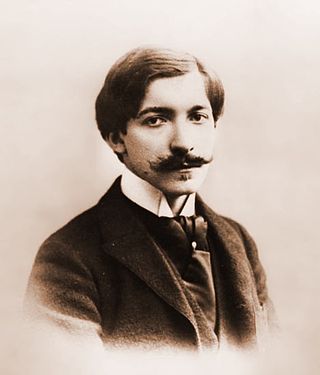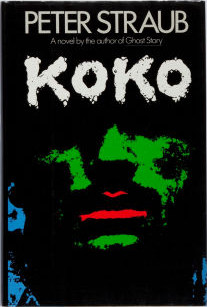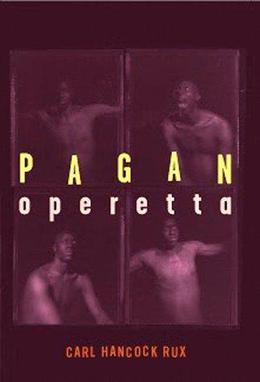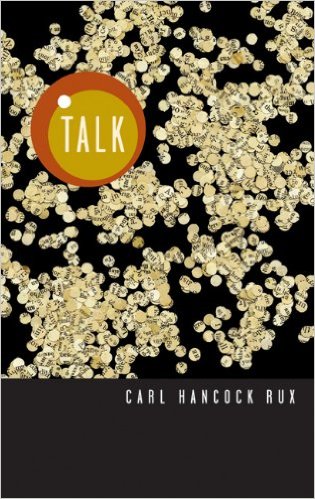
Richard Aldington was an English writer and poet. He was an early associate of the Imagist movement. His 50-year writing career covered poetry, novels, criticism and biography. He edited The Egoist, a literary journal, and wrote for The Times Literary Supplement, Vogue, The Criterion, and Poetry. His biography, Wellington (1946), won him the James Tait Black Memorial Prize.

Vasily Semyonovich Grossman was a Soviet writer and journalist. Born to a Jewish family in Ukraine, then part of the Russian Empire, Grossman trained as a chemical engineer at Moscow State University, earning the nickname Vasya-khimik because of his diligence as a student. Upon graduation, he took a job in Stalino in the Donets Basin. In the 1930s he changed careers and began writing full-time, publishing a number of short stories and several novels.

Pierre-Félix Louÿs was a Belgian poet and writer, most renowned for lesbian and classical themes in some of his writings. He is known as a writer who sought to "express pagan sensuality with stylistic perfection". He was made first a Chevalier and then an Officer of the Légion d'honneur for his contributions to French literature.

Peter Llewelyn Davies was the middle of five sons of Arthur and Sylvia Llewelyn Davies, one of the Llewelyn Davies boys befriended and later informally adopted by J. M. Barrie. Barrie publicly identified him as the source of the name for the title character in his 1904 play Peter Pan, or The Boy Who Wouldn't Grow Up.

Austerlitz is a 2001 novel by the German writer W. G. Sebald. It was Sebald's final novel. The book received the National Book Critics Circle Award.

Dorothy Bussy was an English novelist and translator, close to the Bloomsbury Group.

Carl Hancock Rux is an American poet, playwright, singer-songwriter, novelist, essayist, as well as multidisciplinary performing and installation artist. He is the author of a collection of poetry, Pagan Operetta, a novel, Asphalt and the play Talk, Rux has been published as a contributing writer in numerous journals, catalogs, anthologies, and magazines including Interview magazine, Essence magazine, the New York Times, the Los Angeles Times, Iké Udé's aRude Magazine, Nka: Journal of Contemporary African Art and American Theatre (magazine), among others. Rux's writings and monographs on visual art include essays on the work of conceptual artist Glenn Ligon ; the introduction for Nick Cave’s Until; and the Guggenheim Museum’s Carrie Mae Weems retrospective.

André Téchiné is a French screenwriter and film director. He has a long and distinguished career that places him among the most accomplished post-New Wave French film directors.

Martin à Beckett Boyd was an Australian writer born into the à Beckett–Boyd family, a family synonymous with the establishment, the judiciary, publishing and literature, and the visual arts since the early 19th century in Australia.

Koko is a horror-mystery novel by American writer Peter Straub, first published in the United States in 1988 by EP Dutton, and in Great Britain by Viking. It was the winner of the World Fantasy Award for Best Novel in 1989.

Erotic lactation is sexual arousal by sucking on a female or male breast. Depending on the context, the practice can also be referred to as adult suckling, adult nursing, and adult breastfeeding. Practitioners sometimes refer to themselves as being in an adult nursing relationship (ANR). Two persons in an exclusive relationship can be called a nursing couple.

Brown Girl, Brownstones is the debut novel by the internationally recognized writer Paule Marshall, first published in 1959, and dramatized by CBS Television Workshop in 1960. The story is about Barbadian immigrants in Brooklyn, New York. The book gained further recognition after it was reprinted in 1981 by the Feminist Press.

Suite française is the title of a planned sequence of five novels by Irène Némirovsky, a French writer of Ukrainian-Jewish origin. In July 1942, having just completed the first two of the series, Némirovsky was arrested as a Jew and detained at Pithiviers and then Auschwitz, where she was murdered, a victim of the Holocaust. The notebook containing the two novels was preserved by her daughters but not examined until 1998. They were published in a single volume entitled Suite française in 2004.

The Nuyorican Poets Cafe is a nonprofit organization in the Alphabet City neighborhood of Manhattan in New York City. It is a bastion of the Nuyorican art movement, and has become a forum for poetry, music, hip hop, video, visual arts, comedy, and theater. Several events during the PEN World Voices festival are hosted at the cafe.

Pagan Operetta (1998) is a collection of poetry and experimental prose by Carl Hancock Rux, his first poetry collection. It won the 1999 Village Voice Literary Prize. Rux subsequently adapted one section for stage performance, initially also under the title Pagan Operetta, later as The No Black Male Show.

Possessing the Secret of Joy is a 1992 novel by Alice Walker.
John D. Hancock is an American stage and film director, producer and writer. He is perhaps best known for his work on Bang the Drum Slowly. Hancock's theatrical work includes direction of both classic and contemporary plays, from Shakespeare to Saul Bellow.

A Cruel God Reigns is a Japanese manga series written and illustrated by Moto Hagio. It was originally serialized in the manga magazine Petit Flower from 1992 to 2001, and published as seventeen tankōbon volumes by Shogakukan. The series follows Jeremy Butler, a teenage boy who murders his physically and sexually abusive stepfather. In 1997, A Cruel God Reigns was recognized with the inaugural Tezuka Osamu Cultural Prize Award for Excellence.

Talk is a play written by Carl Hancock Rux, commissioned and premiered by The Foundry Theatre at the Joseph Papp Public Theater/New York Shakespeare Festival in 2002. The play was directed by Marion McClinton, with set by James Noone, costumes by Toni-Leslie James, lighting by James L. Vermeulen, sound by Tim Schellenbaum and projections by Marilys Ernst.

The Devil All the Time is the debut novel by American writer Donald Ray Pollock, published in 2011 by Doubleday. Its plot follows desperate characters in post-World War II Southern Ohio and West Virginia, including a disturbed war veteran, a husband and wife who are serial killers, and an abusive preacher. A film adaptation of the same name directed by Antonio Campos and narrated by Pollock, starred Tom Holland, Sebastian Stan, Robert Pattinson and Bill Skarsgård, and was produced by Jake Gyllenhaal.



















